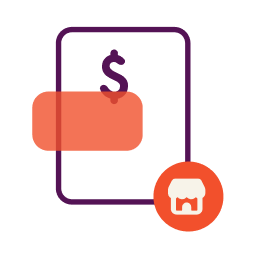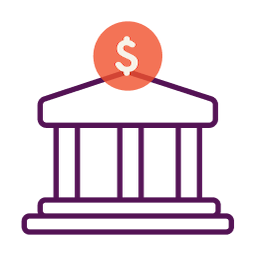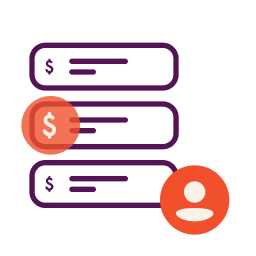If you’re looking for business financing, your first question may be, “What types of loans can I get?” If your credit is anything less than good, you may worry that it will keep you from qualifying.
Here’s how to find business loans and credit cards that don’t require good credit or a hard credit pull.
What Is a Hard Credit Pull?
When you submit a loan application, including applications for credit cards, mortgages, auto loans or some small business loans, lenders often assess your creditworthiness by checking credit. They may also use credit to help set your interest rate, or determine the size of your loan or line of credit.
Lenders may check personal credit reports, business credit reports, and/or credit scores from one or more of the major consumer or business credit bureaus. That credit check is noted on your credit reports as an “inquiry.”
All inquiries are logged by the credit bureaus, because under a federal law, the Fair Credit Reporting Act, you have the right to see the names of all companies that checked your credit reports in the past two years. However, not all inquiries are shown to lenders.
Some credit checks create what’s known as a “hard credit inquiry” or “hard pull.” With a hard credit check, any lender who reviews your credit report will see the inquiry, and that inquiry will affect your credit scores.
By contrast, soft credit pulls, or soft credit inquiries, will be shown only when you check your credit reports. Lenders don’t see them, and they don’t affect credit scores. Soft inquiries are often the result of you checking your own credit history, or when you’re being pre-approved for a loan or credit card.
Hard credit checks are often considered important to lenders making credit decisions, but they can slightly lower your credit score by a few points. Why? Because the companies that create credit scoring models, like FICO and VantageScore, have found that inquiries are associated with slightly higher credit risk.
Is a Hard Credit Pull Required To Get a Business Loan?
Small business owners applying for a small business loan or financing may experience credit checks. Even though you’re applying for a business loan, lenders may check:
- Personal credit (hard inquiry)
- Personal credit (soft inquiry)
- Business credit
- No credit checks
Some lenders will use a soft credit check for preapproval, followed by a hard inquiry if you decide to apply. Others may not check credit.
Business credit reports may include inquiries but they are not typically as important a credit score factor.
If you apply for an SBA guaranteed loan, keep in mind the SBA requires personal credit checks for all owners with 20% or more ownership in the business. Some SBA loans require the lender to pull a FICO SBSS score early in the application process. This score can take into account both business and personal credit.
Some business lenders won’t check personal credit, but often those same lenders require your business to be operating as a legal entity such as an LLC or corporation, and they will require proof of strong revenue.
Does a Hard Credit Pull Impact Personal Credit?
A hard inquiry can impact your personal credit scores, and it’s important to understand how, because inquiries are often misunderstood.
There are many factors that affect credit scores. Compared to credit utilization and payment history, inquiries aren’t as important.
A single inquiry will often cause a credit score drop in the range of 3—7 points. Often the impact is short term and will level out as long as your reports don’t continue to list a lot of new inquiries.
Inquiries can be listed on your credit reports for two years, but most credit scoring models only consider hard inquiries within the most recent past 6—12 months.
Some inquiries in a short period of time (usually 14 – 45 days) are grouped together and count as one, though that doesn’t apply to inquiries for business loans and credit cards.
Also keep in mind that most lenders will check credit with one of the major credit bureaus. That means the inquiry only affects credit scores created from that one bureau’s reports.
New credit is another factor closely related to inquiries. New accounts can also impact your credit scores, but like inquiries, it can often be a short-term impact.
Does a Business Loan Affect Your Credit?
Maybe, maybe not. Business loans typically don’t appear on your personal credit reports unless you don’t pay them on time.
Business loans can affect your business credit, but not all business loans report to commercial credit bureaus.
How Does a Business Loan Affect Your Credit?
Again, business loans typically won’t show up on your personal credit reports unless you default. If you have signed a personal guarantee, the lender can report account information to personal credit, but again, most won’t if you pay on time.
When it comes to business credit, these loans can affect your credit in a couple of ways:
Some lenders report business loans to business credit bureaus. They may report negative information, positive information, or both.
Another way that loans can affect business credit is when the lender files a UCC lien. UCC filings help creditors protect their interest in the property of a business.
Once Your Business Has a Loan Does That Build Credit?
If the lender or supplier reports your loan to business credit reporting agencies and you pay on time, that credit reference can help you establish business credit.
How Do I Get a Business Loan if I Don’t Have Good Credit?
Many lenders, especially traditional lenders like banks, and many business credit card issuers require good or excellent credit to qualify.
But not every type of financing has those requirements. There are business loans without a credit check, as well as loans that check credit but will be flexible on qualifications.
In particular, you may want to check out these types of loans:
Merchant cash advances
This type of financing cares most about your revenues. (Business cash advances are similar.) Your past sales are evaluated to determine how much to advance against future sales. Weekly or even daily payments may be required.
Invoice factoring or financing
This type of financing is for B2B businesses that sell goods or services to another business. With invoice financing, you sell or assign your invoices to another company at a discounted rate in exchange for cash now. The financing company then collects the invoiced amount and you’ll pay them a fee for this service.
Supplier or vendor terms
Vendors or suppliers may be willing to let your business buy goods or services and pay for them later. These terms can range from net-10 to net-180 or longer. (Net-30 terms means you have 30 days from the invoice date to pay.)
Microloans
These are smaller loans, usually made by non-profit lenders trying to help spur economic growth by working with underserved entrepreneurs.
Crowdfunding
Here you raise money from people who are interested in your product or service. There are several types of crowdfunding, including loan-based crowdfunding, rewards-based crowdfunding and investment-based crowdfunding.
In addition to business loans, you may want to explore business credit cards. While most small business credit card issuers require good or excellent personal credit, there are exceptions. There are even a few credit card companies that offer cards for bad credit. Options to explore include:
Before you fill out a loan or credit card application, it’s a good idea to check your credit to find out where you stand. By law, you can get your personal credit reports from annualcreditreport.com and there are more than 138 places to get your credit scores for free.
Can You Get a Business Loan Without Using Credit?
Yes, you may be able to get a business loan based on business revenues. Typically your business will have to be at least 1-2 years old, and you will need to be able to document business revenues through business bank account statements, and/or business tax returns.
Revenue-based financing may also be available based on credit or debit card sales, or accounts receivable.
How Nav Can Help
Nav can help you understand what you qualify for before you apply. View your top financial options from 160+ trusted loans and credit cards based on your business data.




Have at it! We'd love to hear from you and encourage a lively discussion among our users. Please help us keep our site clean and protect yourself. Refrain from posting overtly promotional content, and avoid disclosing personal information such as bank account or phone numbers.
Reviews Disclosure: The responses below are not provided or commissioned by the credit card, financing and service companies that appear on this site. Responses have not been reviewed, approved or otherwise endorsed by the credit card, financing and service companies and it is not their responsibility to ensure all posts and/or questions are answered.